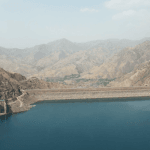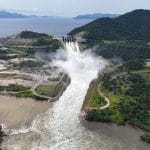The European Bank for Reconstruction and Development (EBRD) and the Croatian National Bank (CNB) have agreed to help the country’s financial institutions in addressing climate change by mobilising financing and appraising climate risk.
“Preventing the spread of climate change will require enormous amounts of capital,” said Francis Malige, EBRD managing director, Financial Institutions. “The entire financial sector must have an aligned approach to financing the needs of the real economy if we are to have any hope of achieving a net-zero-carbon world by 2050,” he added.
CNB Governor Boris Vujcic said banks could have a pronounced positive influence if they were to finance environmentally friendly projects and make green investments. “We do not protect the environment only by switching to low-energy lightbulbs or choosing a hybrid or electric car but also by investing consciously,” he said.
The COVID-19 pandemic has exposed the vulnerability of the global economy, Malige stressed: “We have learned from the pandemic the enormous impact that global threats can have. This experience is applicable to the global crisis of climate change, which is also affecting the competitiveness and sustainability of traditional business models, with many livelihoods becoming increasingly vulnerable,” he said.
A consequence of these developments is the realisation that it is crucial not only to overcome the coronavirus pandemic, but also to “build back better”. The EBRD banker added: “We now have a rare opportunity to support a post-pandemic recovery that also drives the low-carbon transition and builds resilience to the physical risks brought about by climate change. Accelerated by the Covid-19 crisis, green investments have now become a necessity, not a ‘nice-to-have’.”
The EBRD and the CNB agree that business strategies need to take climate risks into account in order to make businesses more robust and resilient to climate change. Malige said closer attention to climate risks and their impact on investments – green or otherwise – must be part of sound banking practices. With a clearer understanding of the climate-related challenges, he said, it becomes much easier to recognise the investment opportunities.







